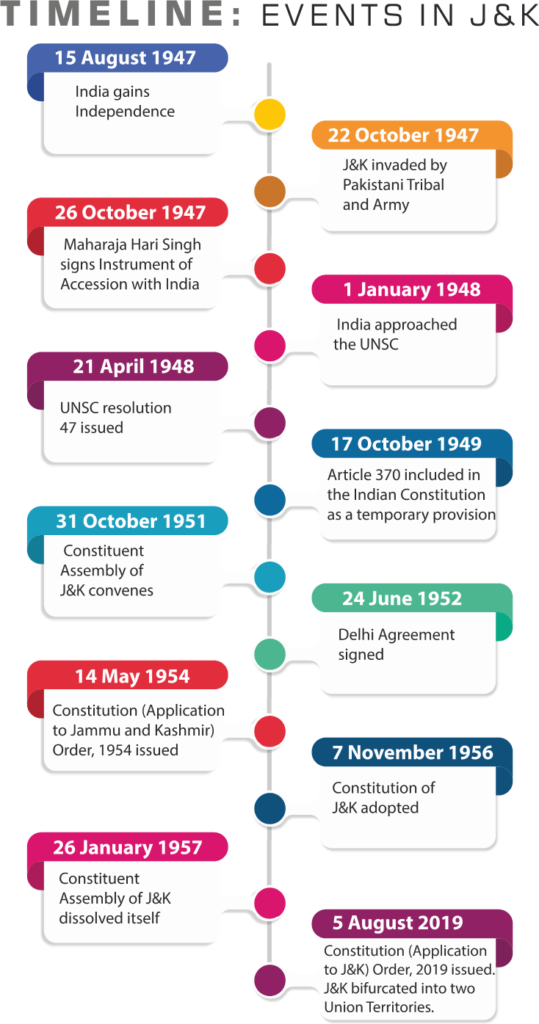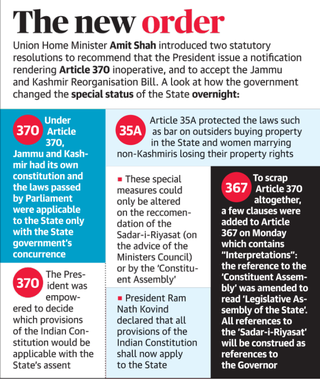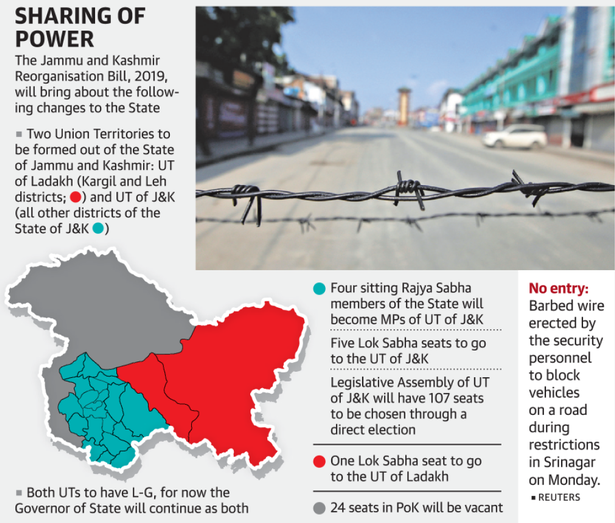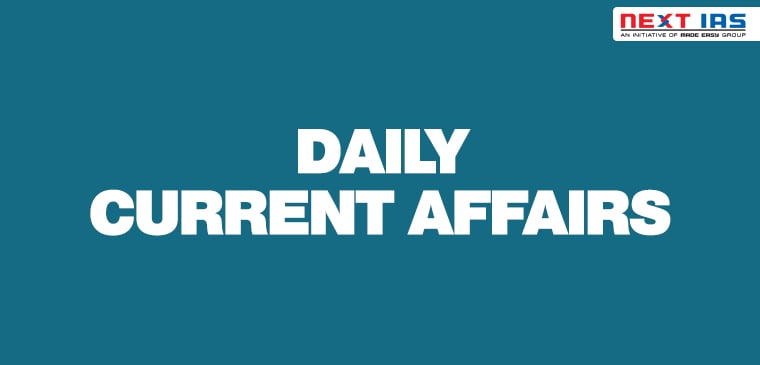
In News:
Recently, the Jammu and Kashmir (J&K) administration has restored high-speed mobile Internet for the first time since 5th August 2019.
- The Home department revoked the restrictions on mobile data services and fixed-line Internet after the advice of a special committee and upon careful review of the overall security situation in the UT.
- The high-speed mobile Internet remained suspended for 18 months to keep handlers across the border away and it impacted students and businesses the most.
Background:
- The Internet, mobile and telephone connections were snapped in J&K when the Centre abrogated the erstwhile state’s special status under Article 370 and Article 35A on 5th August 2019.
- 5th August 2020, marked the first anniversary of the event, after which high-speed mobile data services were restored in Ganderbal and Udhampur on a trial basis on 16th August 2020.
- However, in January the UT administration again extended a ban on high-speed mobile data services.
|
Scrapping of Articles 370 and 35A
|
About Internet Shutdowns:
- Internet shutdowns are an absolute restriction placed on the use of Internet services due to an order issued by a government body.
- It may be limited to a specific place and to a specific period, time or number of days. Sometimes it can even extend indefinitely.
- An Internet shutdown may be limited to mobile Internet or the wired broadband that or both at the same time.
- Data Analysis in Indian Context:
- Between 2017 and 2019, there was a huge increase in the number of preventive Internet shutdowns enforced by the central and the state governments.
- There were at least 147 instances for which there is no data on the duration of the shutdowns.
- According to data available in the public domain and compiled by the Software Freedom Law Centre (SFLC), there is a lack of any form of communication on these blockades.
- In most of these instances, there was no formal order being issued to the telecom operators.
- Since 2012, Jammu and Kashmir has seen at least 60 instances of connectivity being snapped for more than 24 hours without any official order.
- In 2017, there were 79 instances of Internet shutdown across the country. Similarly, in 2018, authorities suspended mobile phone connectivity 126 times, and 100 times in 2019.
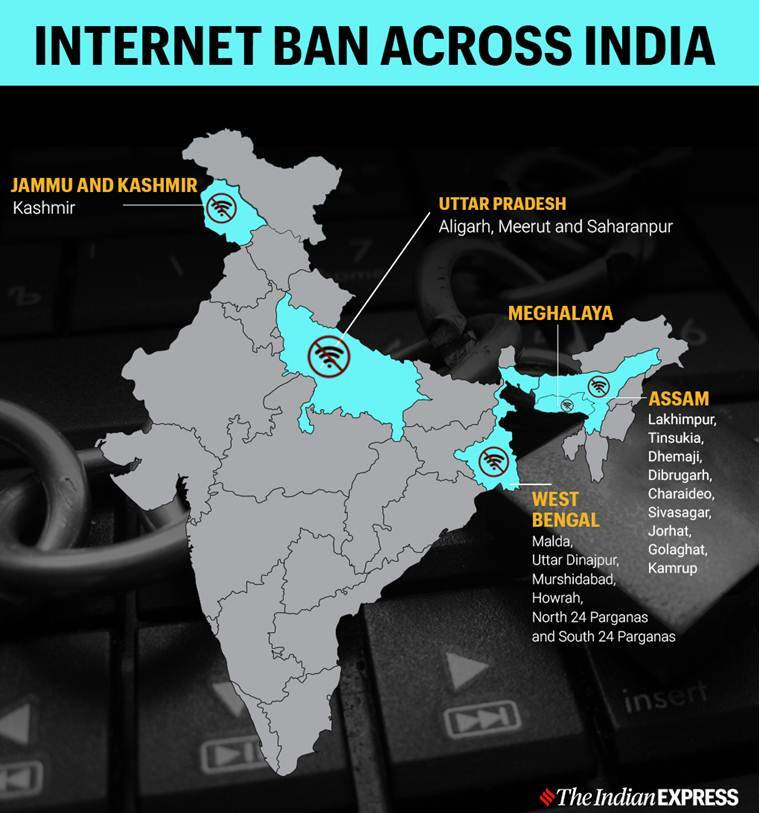
- Global Status:
- The total number of Internet shutdowns increased from 75 in 2016 to 106 in 2017, and to 196 in 2018.
- In 2018, of the 196 shutdowns in 25 countries, as many as 134 were in India, followed by Pakistan with 12 shutdowns.
- Asia and Africa saw the most shutdowns in 2018.
- Authoritarian regimes such as China and Iran routinely cut their people off from the world wide web.
- The total number of Internet shutdowns increased from 75 in 2016 to 106 in 2017, and to 196 in 2018.
- Reasons for Shutdowns:
- To ensure peace during a festival procession.
- To prevent cheating in exams.
- To block the flow of information about government actions or to end communication among activists
- To curb uploading, downloading and circulation of provocative videos, guard against rumour-mongering/fake news, prevent the use of encrypted messaging and coordinating terror activities.
- To defeat the nefarious designs from across the border to propagate terrorism.
- To prevent the misuse of data services by elements that have the potential to scale up violent activities and disturb public order.
- Procedure Followed to Shut Internet:
- Under the Indian Telegraph Act of 1885, only the Home Secretary of the central or the state government can pass orders to enforce an Internet shutdown in any area. The Act lays down many checks and balances.
- The order must include the detailed reasons for the shutdown and must be sent to a review committee the following day.
- The committee will submit its report within five days. The communications blockade will continue only if the shutdown is justified by the committee.
- However, states generally do not follow the whole procedure.
- Rajasthan is the only state that provides a formal order for nearly all Internet shutdowns it enforces.
- Using Section 144 of the Code Of Criminal Procedure to justify the communications blockade and the continuance of it, has been a rising trend.
- Section 144 gives a magistrate the powers to enforce a general shutdown of the area, if he or she believes that there could be violence in the area.
- Most of the Internet shutdowns are done using the ‘kill switch’ individual tower-wise in respective areas.
- Following instructions from the authorities, the local unit of the telcos switches off power to the tower in that area, following which mobile phones in the area latch on to the next nearest tower.
- Impact:
- Economic Impact:
- It damages the economies and individual businesses
- Reports estimate that India loses around Rs. 6,000 crore per year due to Internet shutdowns.
- The government had told the Rajya Sabha that it did not keep a track of how much losses were incurred by the states or the individuals owing to the Internet shutdowns.
- Social Impact:
- Internet shutdowns drastically disrupt the daily life of ordinary citizens and they might feel isolated from their community and a disconnect from the rest of the world.
- In areas, where the Internet has become embedded into the health and education sectors, its absence disrupts the whole value chain.
- It disrupts the transportation system especially ride sharing applications which rely on the Internet for geolocation data and online payment systems.
- Technical Impact:
- There are collateral damages associated with network disruptions. These include the form of over-blocking of websites and content that was not intended to be restricted.
- It exposes users to privacy and security risks. For example, when people turn to untrustworthy VPNs in order to route around restrictions, their personal data is at risk.
- Impact on Governance:
- In the wake of Digital India, universal payments and cashless India, availability of the mobile Internet is absolutely necessary for the flow of the economy and governance but these shutdowns hamper them as well.
- Economic Impact:
Related Court Judgements:
- In Faheema Shirin versus the State of Kerala, 2019, the Kerala High Court declared the right to Internet access as a fundamental right forming a part of the Right to Privacy and the Right to Education under Article 21 of the Constitution.
- In Anuradha Bhasin versus the Union of India, 2020, the Supreme Court ruled that an undefined restriction of internet services would be illegal and that orders for internet shutdown must satisfy the tests of necessity and proportionality.
Way Forward:
- In recognition of the Internet as a human right, the United Nations Human Rights Council passed a non-binding resolution on “The promotion, protection and enjoyment of human rights on the Internet” in 2016.
- It condemns countries for disrupting Internet access to the citizens and expressed concerns on human rights violations and abuses on the Internet.
- It also held that measures aiming to intentionally prevent or disrupt access to or dissemination of information online, violate international human rights law.
- The Internet is kind of a basic human right, even if it is not legally defined as such, for most parts of the world. Without access to the virtual world, a very large number of vital human activities simply stop. Hence, it is crucial for governments to understand this and look for alternative or less damaging options.
Previous article
Glacial Burst
